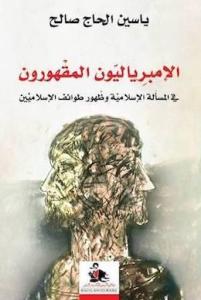
Yassin al-Haj Saleh
Writer
Istanbul
Born in 1961 in Raqqa, Syria
Studied Medicine at the University of Aleppo
Arbeitsvorhaben
Modes of Mass Murder: a Comparative Study
In what ways does mass killing in Syria differ from other well-known examples of mass murder in Rwanda, Cambodia, and before them Nazi Germany, Soviet Russia, and the Armenian Genocide? Variables like bureaucratization, the role of labor in concentration camps, and a theory of supremacy (of race or class) are either lacking in the Assadist mode of killing, in contrast to the Holocaust and the Gulag, or they are not systematic. Physical contact between the victims and the perpetrators was almost absent in the Soviet and Nazi killings, but this is not the case in Syria and Rwanda. The Daesh mode of killing preferably involves physical contact between the killer and the killed. What are the roles of religion, sect, and ethnicity in this mode? Can we differentiate between violent violence like what we experienced in Syria at the hands of the regime and Daesh, and the more organized and less violent violence of Israel against Palestinians for instance? Is it possible also to speak of historical progress in modes of killing, the way Marx talked about modes of production in his days? What are the relations between modes of killing and political systems, social structures, and cultural organization in specific countries? Are contemporary modes of killing understandable on the basis of individual countries: Syria, Sudan, Rwanda, Cambodia, etc.? What are the forms of articulation between violent and less violent modes of killing on the global level? Is it possible for us to interpret the contemporary world order (as it is institutionalized in the UN, many other organizations, and especially the UNSC) as a global organization of death, violent death? Finally, is politics without violence, even organized and legitimately monopolized violence, possible?Recommended Reading
Al-Haj Saleh, Yassin. Myths of the Successors: a Critique of Contemporary Islam and a Critique of the Critique (in Arabic). Beirut: Dar al-Saqi, 2012.
-. (Salvation, oh Boys: 16 Years in the Syrian Prisons). English edition: The Impossible Revolution: Making Sense of the Syrian Tragedy. London: Hurst, 2014.
Publikationen aus der Fellowbibliothek
al-Haj Saleh, Yassin (Donnemarie-Dontilly, 2022)
Journal d'une assiégée Yaumīyāt al-ḥiṣār fī Dūmā 2013
al-Haj Saleh, Yassin (Tricase, 2021)
Libertà : casa, prigione, esilio, il mondo Collana: Nuoveterre
al-Haj Saleh, Yassin (Bairūt, 2021)
al-Faẓīʿ wa-tamṯīluhū : mudāwalāt fī šakl Sūriya 'l-muḫarrab wa-tašakkuliha 'l-ʿasīr al-Faẓīʿ wa-tamthīluh mudāwalāt fī shakl Sūriyā al-mukharrab wa-tashakkulihā al-ʿasīr
al-Haj Saleh, Yassin (Bodenburg, 2019)
Die syrische Sache und der Antiimperialismus
al-Haj Saleh, Yassin (Bairūt, 2019)
Conquered imperialists on the islamic question and the emergence of Islamist sects al-Imbiryālīyūn al-maqhūrūn : fī al-masʼalah al-Islāmīyah wa-ẓuhūr ṭawāʼif al-Islāmīyīn
al-Haj Saleh, Yassin (Guadarrama, 2018)
Siria, la revolución imposible aṯ-Ṯaura al-mustaḥīla
al-Haj Saleh, Yassin (Guadarrama, Madrid, 2017)
Diario del asedio a Duma 2013 Encuentros ; 13
al-Haj Saleh, Yassin (Bairūt, 2017)
aṯ-Ṯaura al-mustaḥīla : aṯ-ṯaura, al-ḥarb al-ahlīya, wa-'l-ḥarb al-ʿāmma fī Sūrīya al-Thawrah al-mustaḥīlah$dal-thawrah, al-ḥarb al-ahlīyah, wa-al-ḥarb al-ʿāmmah fī Sūrīyah
al-Haj Saleh, Yassin (London, 2017)
Impossible revolution : making sense of the Syrian tragedy
al-Haj Saleh, Yassin (Bairūt, 2016)
Culture as politics Thaqāfah ka-siyāsah$dal-muthaqqafūn wa-masʾūlīyatuhum al-ijtimāʿīyah fī zaman al-ghīlān

Im Kolleg entstanden 15.01.19
Köpfe und Ideen 2018
Letter from Berlin: Articles to Samira (5)
von Yassin al-Haj Saleh

